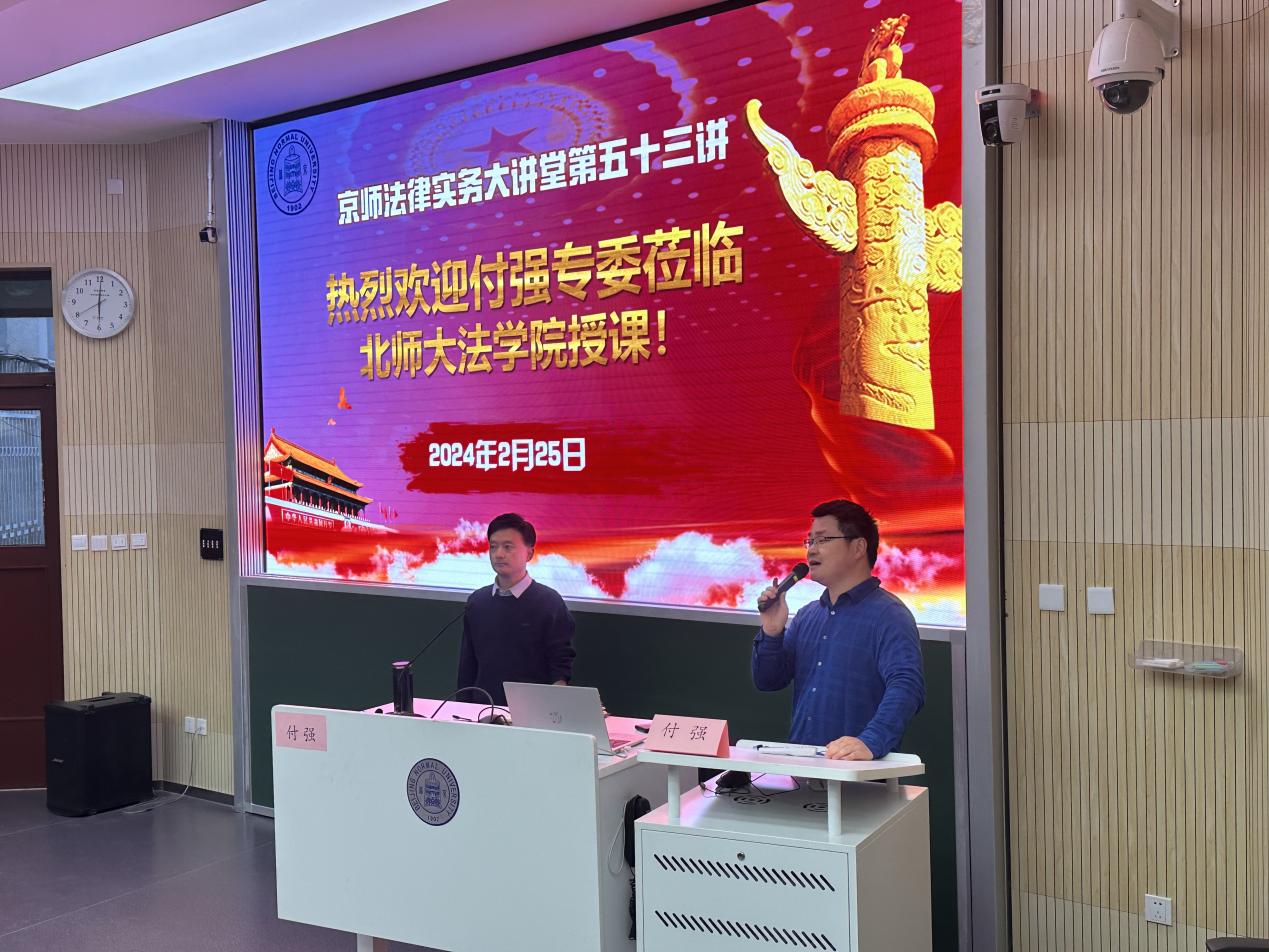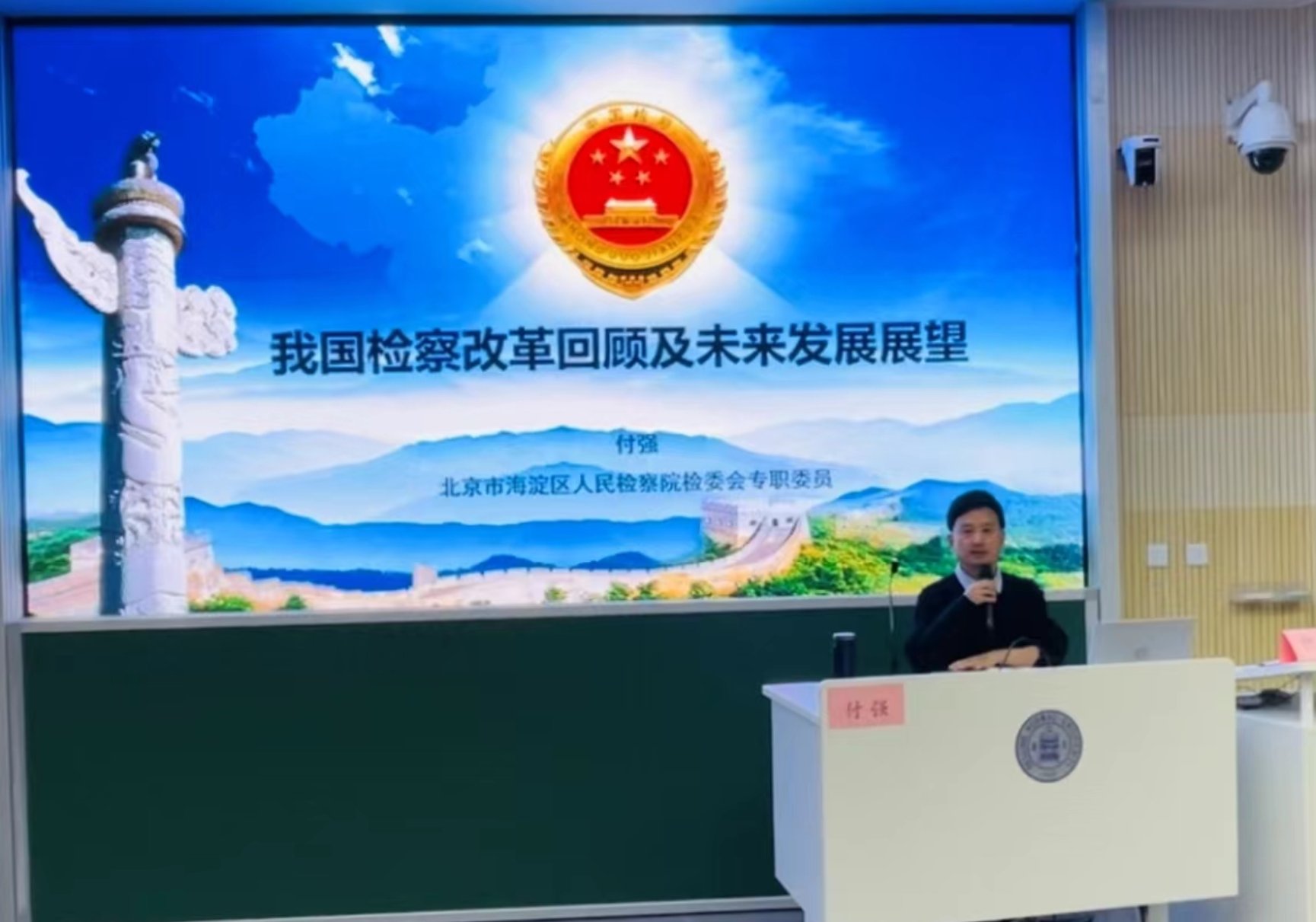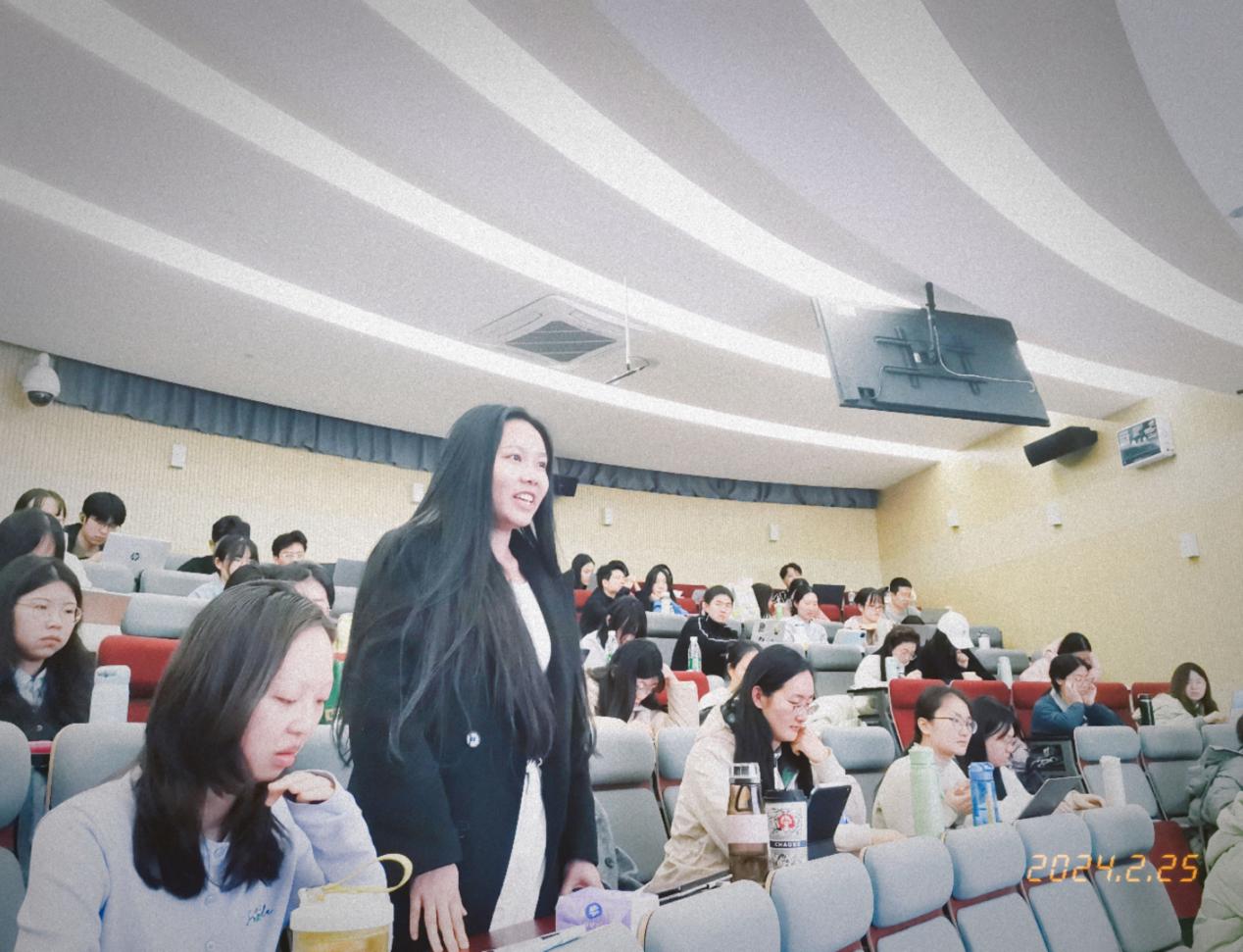
On February 25th, the 53rd lecture of the BNU Legal Practice Lecture Series, titled "Review and Future Development Prospects of China's Procuratorial Reform," was successfully held in the lecture hall of the Electronic Building at Beijing Normal University. This lecture was given by a full-time member of the Procuratorate Committee of Haidian District People's Procuratorate in Beijing, and hosted by Shang Haowen, an associate professor and doctoral supervisor at the Law School of Beijing Normal University. More than 130 teachers and students attended the lecture.
This lecture is also an important part of the course "Procuratorial Practice". To further implement Xi Jinping's thought on the rule of law, promote a positive interaction between legal education and prosecutorial practice, jointly implement the strategies of revitalizing the country through science and education and strengthening the nation through talent in the new era, and advance the cultivation of high-quality legal talents, the Law School of Beijing Normal University has launched a "Prosecutorial Practice" course in the spring of 2024, which will be lectured by experts with practical experience from the prosecutorial system. The course of "Procuratorial Practice" is based on the actual situation of prosecutorial work, focusing on the latest fields and achievements of prosecutorial reform, teaching students new concepts and practices of prosecutorial work in the new era, and laying a professional development foundation for law students who are interested in engaging in prosecutorial work and other judicial practices.

Prosecutor Fu Qiang boasts an extensive background in criminal prosecution, having dedicated significant time to theoretical exploration within the field. Holding a doctoral degree in law, he is a dedicated full-time member of the Procuratorate Committee at the Haidian District People's Procuratorate in Beijing. Recognized as a core national research talent within the procuratorial community, Fu Qiang is an expert in Beijing's procuratorial affairs. He has contributed to numerous pivotal projects, including those funded by the National Social Science Fund and the Supreme People's Procuratorate. His scholarly contributions are well-documented in esteemed journals like the "Law Journal" and the "Chinese Criminal Law Journal," and he has also authored specialized works, including the notable book "Integrated Investigation of the Trend of Light Punishment."
Taking history as a mirror, we can understand the rise and fall. At the beginning of the lecture, Prosecutor Fu Qiang, based on the perspective of prosecutorial history, elaborated in detail on the birth of the modern prosecutorial system, the origin of China's modern prosecutorial system, and the reform and development of China's prosecutorial system for the teachers and students present. Combining his own prosecutorial practical experience and theoretical research, he deeply explained the evolution of the prosecutorial system, effectively filling the knowledge gaps of the students present and enabling them to have a deeper understanding of the prosecutorial system.

Following this, Prosecutor Fu Qiang threading the narrative through "A Review of China's Procuratorial Reform Since the 18th National Congress," utilized key entry points such as the "Judicial System Reform Centered on the Judicial Responsibility System," the "Criminal Procedure System Reform with the Trial at Its Core," and a suite of reforms spearheaded by the procuratorial organs including "the Leniency System for Confession and Punishment," "the Separation of Complex and Simple Cases," and "the Pre-Trial Leading Responsibility." He also delved into the "Integration of Arrest and Prosecution and the Reform of Internal Institutions," as well as the "Reform of the Supervision System," to provide an in-depth mapping of the operational trajectory of China's procuratorial reforms since the 18th National Congress. His insights guided the assembled faculty and students in a profound exploration of the nuanced process of China's procuratorial reform since the 18th National Congress.
Reflecting on history serves to better shape the future. With a solid grounding in the practicalities of procuratorial reform, Prosecutor Fu Qiang has expressed passionate hopes for the future of China's procuratorial system across four critical dimensions: "establishing and refining an evidence-centric criminal prosecution system," "developing a governance framework for misdemeanors with Chinese characteristics," "enhancing legal supervision to foster the comprehensive, coordinated, and integrated advancement of the 'four major procuratorial functions,'" and "intensifying the development of digital procuratorates." He also inspires students to actively engage in procuratorial endeavors, contribute to the rule of law, infuse the process of procuratorial modernization with their vibrant legal expertise, and to excel in serving the trajectory of China's path to modernization.

In the interactive exchange with the attendees, students enthusiastically posed questions and delved into profound discussions with Prosecutor Fu Qiang regarding the roles and positions of procuratorates at various levels, the real-world operations of the four major procuratorial functions, the management of cases within procuratorial affairs, and the key attributes of procuratorial professionals. The students in attendance universally conveyed that this legal practice lecture and the "Procuratorial Practice" course not only expanded their knowledge base of procuratorial work but also sharpened their vision for future career trajectory planning.
